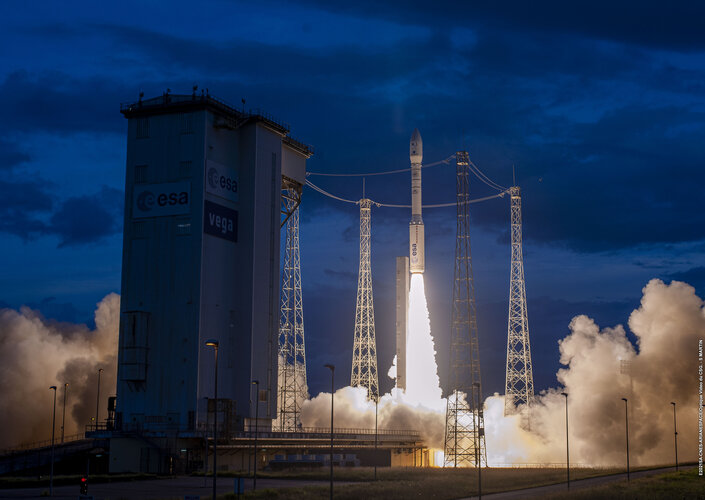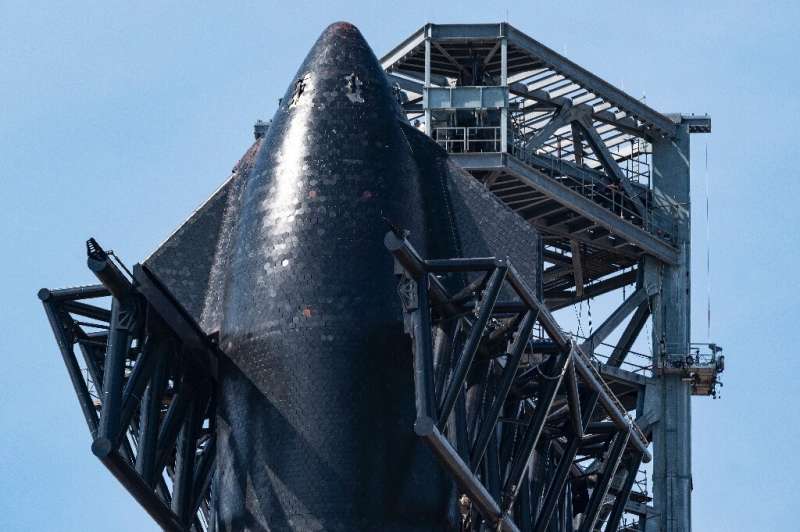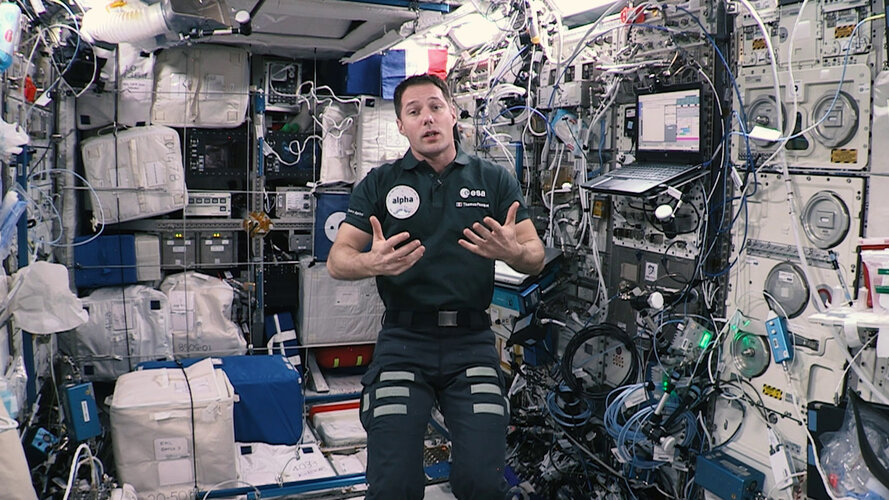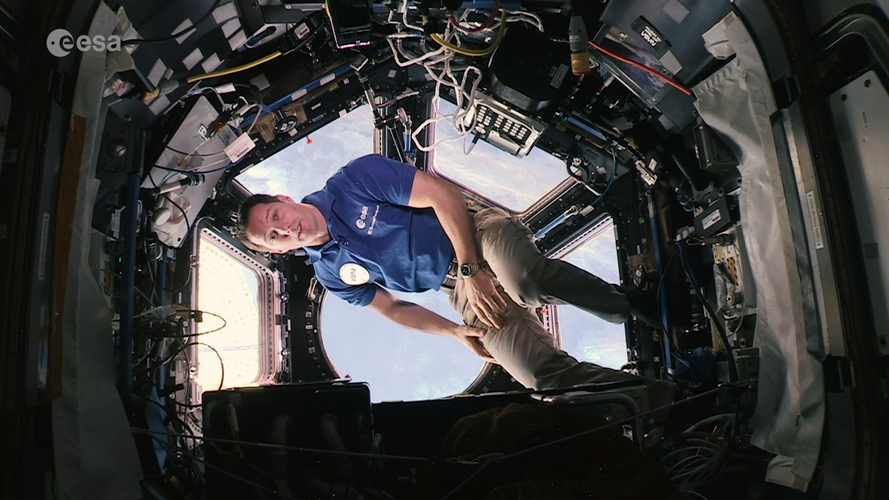
Copernical Team
ESA’s Vega rocket marks ten years with countdown to more powerful successor

Ten years ago this week, 13 February 2012, ESA opened a new era of independent access to space with the inaugural flight of its small launcher Vega. Flying from Europe’s Spaceport in French Guiana, Vega has gone on to earn a reputation for precision and versatility in anticipation of a more capable version, Vega-C.
Week in images: 7 - 11 February 2022

Week in images: 7 - 11 February 2022
Discover our week through the lens
Snow-washed Greece
 Image:
Image:
Rare snowfall over Greece may be the new normal.
For the second year in a row, Greece experienced unprecedented amounts of snow, blanketing the country in white. ESA astronaut Matthias Maurer took this bird’s eye view of the town of Chalcis, along the Euboean Gulf, from the International Space Station in early February.
He posted to social media, noting, “In keeping with its national colours, wintry Greece presented itself in blue and white.”
Storm Elpida swept across Greece and also parts of Turkey, causing mass disruption to the Mediterranean country known more for white-sand beaches and whitewashed homes than snow.
While hard
Photons received: Webb sees its first star – 18 times

The James Webb Space Telescope is nearing completion of the first phase of the months-long process of aligning the observatory’s primary mirror using the Near Infrared Camera (NIRCam) instrument.
Rocket startup's Florida launch debut ends in ocean crash
A rocket startup's big Florida launch debut ended with all four mini satellites destroyed Thursday.
California-based Astra sent its rocket soaring from Cape Canaveral after multiple delays, including a last-second engine shutdown Monday. The 43-foot (13-meter) rocket arced through a clear afternoon sky out over the Atlantic, carrying small research satellites sponsored by NASA.
But shortly after the first-stage booster dropped away, onboard cameras showed the second stage igniting and appearing to tumble. The video cameras went dark less than four minutes into the flight and the airwaves grew silent.
A launch commentator finally confirmed that the payloads failed to reach orbit. Three of the CubeSats were built by universities in Alabama, New Mexico and California, while the fourth was from NASA's Johnson Space Center in Houston. All ended up crashing into the ocean.
Astra CEO and founder Chris Kemp apologized for the loss in a tweet: "I'm with the team looking at data, and we will provide more info as soon as we can."
NASA mission manager Hamilton Fernandez reiterated the space agency's support following the accident.
"Missions like these are critical for developing new launch vehicles in this growing commercial sector," Fernandez said in a statement.
SpaceX's Elon Musk: 1st orbital Starship flight maybe March

SpaceX's Elon Musk said Thursday that the first orbital flight of his towering Starship—the world's most powerful rocket ever built—could come in another month or two.
While he anticipates failures, he's confident Starship will reach orbit by the end of this year.
Musk provided his first major Starship update in more than two years while standing alongside the 390-foot (119-meter) rocket at SpaceX's Texas spaceport. He urged the nighttime crowd, "Let's make this real!"
"This is really some wild stuff here," he said. "In fact, hard to believe it's real.
We explore - you benefit: Health, food, and climate
 Video:
00:04:45
Video:
00:04:45
ESA astronaut Thomas Pesquet shows how space technologies and research onboard the International Space Station are used for the benefit of people on Earth. Thomas explains how space research is relevant to three of the United Nation’s goals: Health (SDG3), Zero hunger and food security (SDG2), and Climate action (SDG13). The Sustainable Development Goals are the world's to-do list for people and the planet by 2030.
Learn more about the European space laboratory, the Columbus module, and four examples of how space exploration supports sustainable development in Europe and in Africa.
This video is Part 2 of a
We explore - you benefit: water and sanitation
 Video:
00:05:43
Video:
00:05:43
Join ESA astronaut Thomas Pesquet as he explains the benefits of space exploration technologies and activities for Earth. This video is focused on the life support technologies originally developed for astronauts and shows how space research on water recycling for deep-space exploration is contributing to sustainable development in Europe and in Africa.
In this video Thomas explains how space research is relevant to the sixth United Nation’s goal ‘Clean Water and Sanitation’. The Sustainable Development Goals are the world's to-do list for people and the planet by 2030.
This video is Part 1 of a 2-part series that describes
First visible light images of Venus' surface from space captured by Parker Solar Probe
 On a flyby of Venus, NASA's Parker Solar Probe captured the first visible light images of the cloudy planet's surface from space, a new study reports. The nightside view of the extremely hot surface could help scientists understand the contrasting evolution of Earth's nearest neighbor.
Smothered in thick clouds, Venus' surface is usually shrouded from sight. But in two recent flybys of the
On a flyby of Venus, NASA's Parker Solar Probe captured the first visible light images of the cloudy planet's surface from space, a new study reports. The nightside view of the extremely hot surface could help scientists understand the contrasting evolution of Earth's nearest neighbor.
Smothered in thick clouds, Venus' surface is usually shrouded from sight. But in two recent flybys of the SwRI scientists help determine comet delivery to Moon
 Southwest Research Institute scientists joined a team that reanalyzed and modeled data from a planned lunar impact more than a decade ago. The findings suggest that volatiles present in a crater near the Moon's south pole were likely delivered by a comet. Volatiles are chemical elements and compounds that can be readily vaporized and, in this case, were stabilized in ice lurking in this permanen
Southwest Research Institute scientists joined a team that reanalyzed and modeled data from a planned lunar impact more than a decade ago. The findings suggest that volatiles present in a crater near the Moon's south pole were likely delivered by a comet. Volatiles are chemical elements and compounds that can be readily vaporized and, in this case, were stabilized in ice lurking in this permanen 































